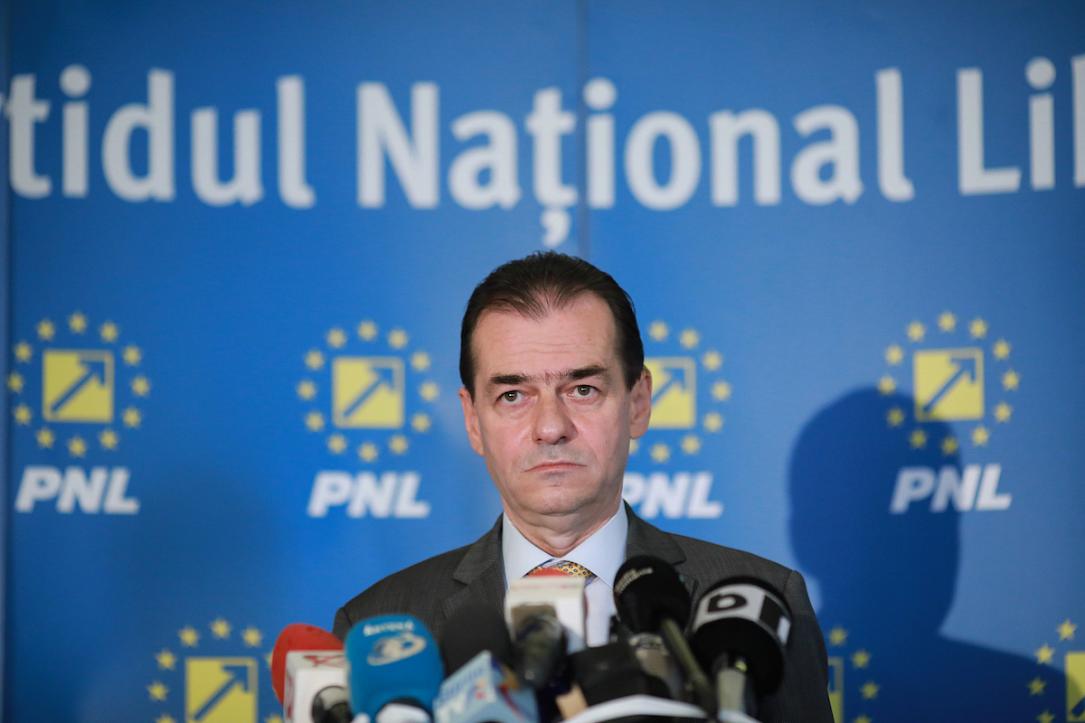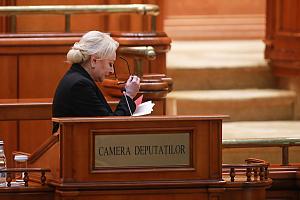Comment: What are the possible scenarios after the fall of the Government in Romania?

A transition government, possibly led by liberal leader Ludovic Orban (opening photo), with weak support in the Parliament, seems now the most likely scenario after the opposition in Romania’s Parliament managed to overthrow the Social Democrat cabinet of Viorica Dancila.
Although the opposition parties managed to put aside their interests and animosities on Thursday to unite against the PSD Government, their leaders’ statements after the motion show that their goals are different.
The National Liberal Party (PNL) and the Save Romania Union (USR), together with USR’s partner PLUS led by former PM Dacian Ciolos, support the idea of early elections, also voiced by president Klaus Iohannis as “the best option”.
Meanwhile, former PM Victor Ponta, the leader of PRO Romania party, who played a decisive role in removing the Dancila cabinet, is reaching out to his former colleagues in PSD inviting them to support a new socialist Government but led by an independent prime minister, and PSD’s former ruling coalition partner ALDE, led by former PM Calin Popescu Tariceanu, is willing to support a conservative Government that will not change important laws.
The Popular Movement Party (PMP) of former president Traian Basescu and the Democrat Hungarian Union (UDMR) haven’t expressed a clear option yet.
Early elections would indeed be a clean solution and a way to bring back political stability. Both PNL and USR-PLUS believe that the current political structure of the Parliament doesn’t reflect the will of the Romanian voters anymore, given the results of the elections for the European Parliament, where they clearly defeated the PSD. Early elections would probably help forge a new majority in the Parliament with PNL and USR-PLUS playing the leading roles.
However, PNL and USR have less than a third of the current number of MPs and none of the other parties will probably accept their proposal for early elections. First of all, because their MPs will not be willing to end their mandates before the legal term (December 2020) and risk not being elected. Secondly, because they have nothing to gain from organizing early elections.
Early elections require the president to dissolve the Parliament after the Parliament rejects two Government formulas within 60 days. This has never happened in Romania in the last 30 years.
Moreover, president Klaus Iohannis can’t afford to pursue an option that has low chances of success after he stated himself that there are urgent matters that need to be solved, such as the budget for next year, the nomination of another European commissioner to represent Romania and organizing the presidential elections.
However, it’s also highly unlikely that he will name a prime minister supported by PSD or a wider coalition, as the one Victor Ponta proposes.
Thus, the most likely scenario remains that of a liberal government that may also include other smaller parties, which would get a conjectural confidence vote from the Parliament but would have no real support to pursue any important reforms. The liberals would take a big risk, in this case, as they could lose some of the support they have now until the elections next year, especially as they may have to make some unpopular decisions to balance the state budget.
Meanwhile, PSD and PRO Romania, which will probably form the new opposition, would have time to recover and consolidate.
Thus, although the liberals initiated the no-confidence motion against the Dancila cabinet, they are now probably the least happy with the outcome (aside maybe from Dancila and her supporters within PSD). Meanwhile, former PM Victor Ponta is today’s biggest winner as he has just made a strong comeback and has the most to gain in the next period.
editor@romania-insider.com
(Photo source: Inquam Photos / George Călin)













